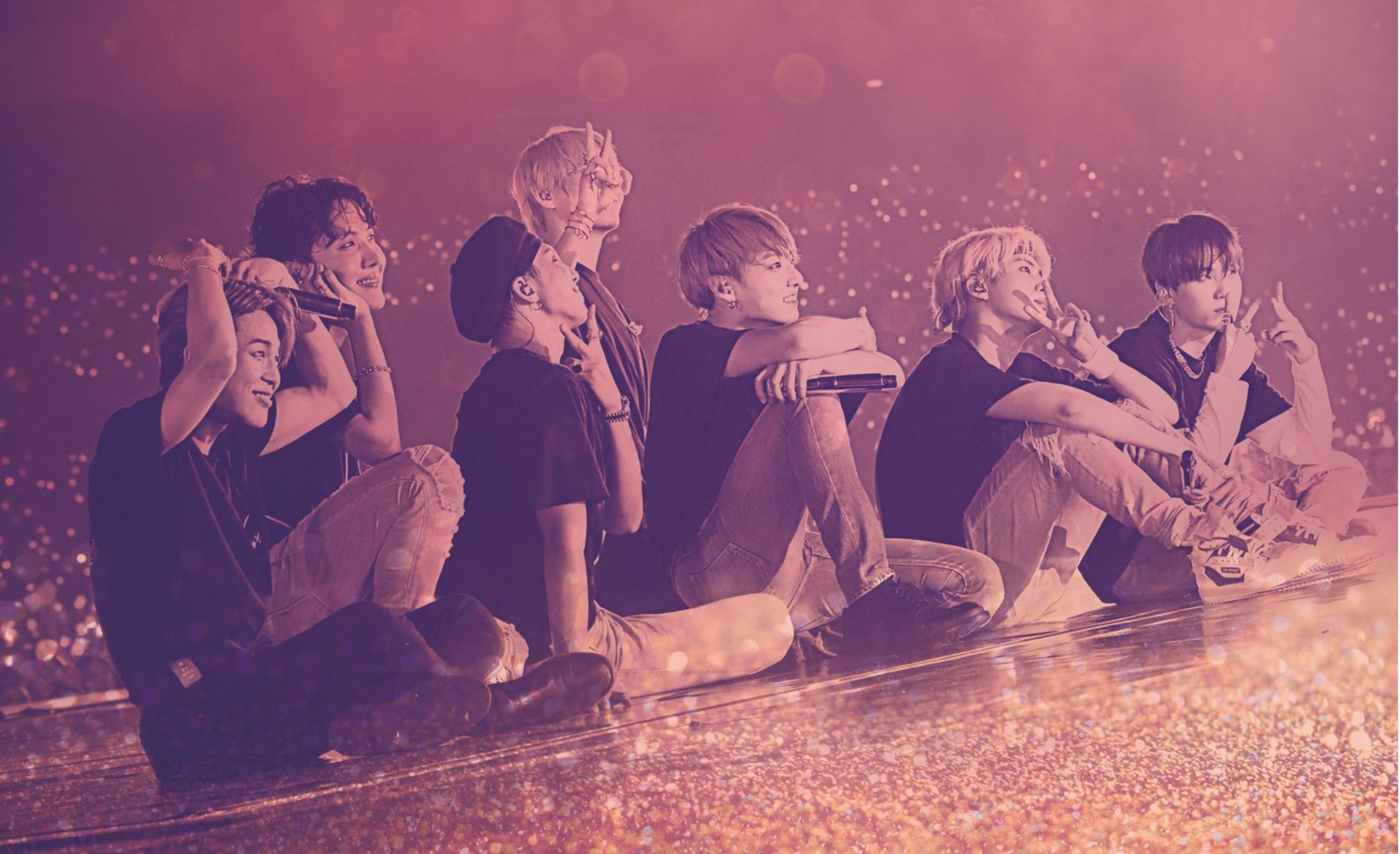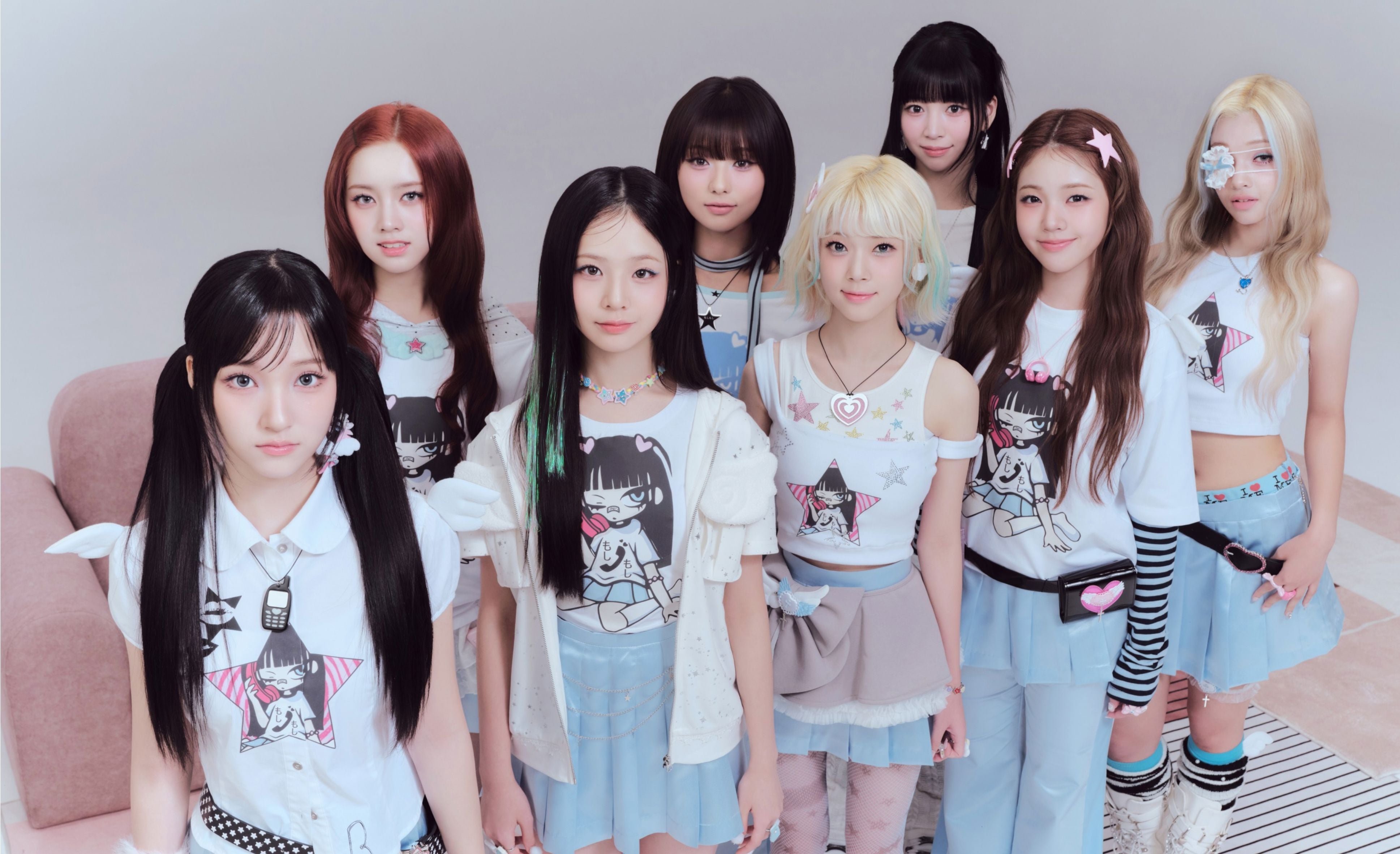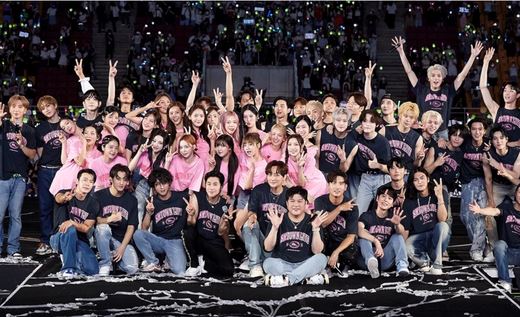All about the 4th generation of K-Pop: 2018/ 2019 until today!
Alles über die 4. Generation von K-Pop: 2018/ 2019 bis Heute!
Autor: Helen Bosch / Okt 18, 2022


K-Pop Blog > Overview > K-Pop Generationen
Im Zusammenhang mit K-Pop ist immer wieder die Rede von “Generations”, in welche die verschiedenen Bands eingeteilt werden. Was genau es damit auf sich hat, haben wir dir in unserem Blog schon einmal genauer erklärt. Falls du den Artikel verpasst hast oder dein Wissen noch einmal auffrischen möchtest, bist du hier richtig!
Heute möchten wir tiefer in die 4th Generation eintauchen, in der wir uns aktuell befinden:
- Wann hat die 4. Generation begonnen?
- Was macht die 4. Generation aus?
- Welche Bands gehören zur 4. Generation?
Wann hat die 4. Generation begonnen?
Wann eine Generation genau startet oder endet, ist oft umstritten, aber nirgendwo gibt es so viele Uneinigkeiten wie bei der vierten Generation. Während die einen sagen, dass sie erst 2019 oder 2020 begonnen hat, denken andere, dass sie schon Mitte 2017 ihren Anfang nahm. Da es kein festes Datum oder eine bestimmte Bedingung gibt, die eine neue Generation einleitet, ist der Übergang oft verwaschen. Irgendwann haben die Medien und die K-Pop-Szene wie selbstverständlich angefangen, neue Gruppen als Teil der vierten Generation zu bezeichnen, aber einen offiziellen Startpunkt gibt es nicht.

Die Mehrheit würde sich wahrscheinlich auf 2018 einigen. Tatsächlich werden zum Beispiel die bekannten Boygroups Stray Kids und Ateez, die beide 2018 debütierten, oft als Anführer der vierten Generation bezeichnet. Selbst das Koreanische Ministerium für Kultur, Sport und Tourismus spricht von Ateez als Leader der vierten Generation.
Trotzdem diskutieren Fans noch heute darüber, ob Stray Kids schon zur vierten Generation gehört oder noch nicht. Das liegt unter anderem daran, dass zu dem Zeitpunkt von Stray Kids Debüt in 2018 noch die dritte Generation vorherrschte und gerade erst die Frage aufkam, ob die vierte Generation schon begonnen hat oder noch nicht.

Gruppen wie ITZY und TXT, die in 2019 ihr Debüt gaben, werden aber ohne Zweifel der vierten Generation zugeordnet, also liegt die allgemein anerkannte Grenze wohl irgendwo in 2018/ 2019.
So oder so wird die vierte Generation uns noch einiges bieten können, denn wenn wir von den vorherigen Generationen ausgehen, wird sie noch ein paar Jahre andauern!
Was macht die 4. Generation aus?
Die vierte Generation zeichnet sich durch eine viel Stärke Nutzung von digitalen Medien wie Social Media Channels aus und die Gruppen zielen schon sehr früh auch auf den globalen Musikmarkt ab. Außerdem wurde die Generation natürlich sehr stark von der Corona Pandemie beeinflusst. Sie hat unter anderem zur Entwicklung und Förderung von Online-Konzerten geführt.
Im Folgenden erklären wir dir die verschiedenen Aspekte etwas genauer. Wie du sehen wirst, sind sie eng miteinander verknüpft.
Stärkere Nutzung von digitalen Medien

Natürlich haben schon frühere Generationen digitale Medien benutzt, um ihre Musik zu vermarkten und in Kontakt mit Fans zu treten. Damit ist vor allem die dritte Generation gemeint, die sich als erste dem Online-Marketing zuwandte. Die vierte Generation ist aber noch viel mehr online unterwegs:
Inzwischen eröffnen neue Idolgruppen schon vor ihrem Debüt einen Account auf Youtube, Instagram, Twitter und Co und laden dort Videos und Fotos von sich hoch. So sammeln sie oft schon im Voraus Follower, die sie von Anfang an anfeuern. Da Fans auf der ganzen Welt ganz einfach auf diese Inhalte zugreifen können, bauen K-Pop-Gruppen heutzutage viel schneller auch eine internationale Fangemeinde auf. Deshalb ist es inzwischen nicht ungewöhnlich, dass neue Stars sogar noch mehr internationale Fans haben als koreanische.
Heute nutzen Idols Tiktok oder Instagram auch regelmäßig für Dance Challenges und viele weitere Events. Außerdem entstehen immer wieder neue Plattformen wie Universe, durch die Fans sogar mit ihren liebsten K-Pop Idols chatten können!
General vergrößern neue Gruppen ihre Reichweite dank den digitalen Medien viel schneller als die aus früheren Generationen und erringen so schon zu Beginn ihrer Karriere große Meilensteine.
Globale Bekanntheit

Dank der Popularität von K-Pop weltweit, die wir unter anderem dem internationalen Durchbruch von BTS zu verdanken haben, zielt die vierte Generation stark auf den globalen Musikmarkt ab. Natürlich haben verschiedene K-Pop-Stars schon früher versucht, zum Beispiel in der USA Fuß zu fassen und Konzerte außerhalb Asiens gegeben, aber erst seit ein paar Jahren wird K-Pop wirklich von den internationalen Medien wahrgenommen.
BTS erregten Aufmerksamkeit, weil sie die ersten koreanischen Idols waren, die in internationalen Unterhaltungsshows wie “The Late Late Show” oder “Good Morning America” auftraten. Heute ist es schon fast normal, dass populäre K-Pop Bands von solchen Shows eingeladen werden. Das gilt sowohl für Bands der zweiten oder dritten Generation, die schon länger im Geschäft sind als auch für Bands der vierten Generation, die gerade erst debütiert sind.
Selbst Gruppen, die nicht in solchen Shows auftreten, erlangen heute viel schneller internationale Bekanntheit, einfach weil K-Pop generell inzwischen einen ganz anderen Status hat als früher und Millionen von K-Pop Fans weltweit jeden Tag Videos anschauen und nach neuen Songs Ausschau halten!
Außerdem arbeiten die koreanischen Entertainments wie JYP, SM, YG oder HYBE immer mehr mit westlichen Plattenlabels zusammen und fördern so die Karriere ihrer Stars außerhalb Asiens.
Der Einfluss von Corona
Die globale Pandemie traf natürlich auch Südkorea und damit die Idols. Plötzlich mussten die Bands vor leeren Zuschauerräumen auftreten und hatten keine Gelegenheit mehr, ihre Fans zu treffen.

Neue Gruppen, die in 2020 und später ihre Karriere starteten, erlebten sogar erst Monate oder Jahre nach ihrem Debüt, wie es ist, live von Fans angefeuert zu werden. Denn es dauerte lange, bis die Welt die Corona-Pandemie so weit im Griff hatte, dass unter strengen Einschränkungen wieder Zuschauer in Shows erlaubt wurden.
Obwohl die K-Pop-Szene von der Pandemie überrascht und ordentlich durcheinander gebracht wurde, hat der ein oder andere einen Weg gefunden, mit der Situation bestmöglichst umzugehen.
Im April 2020 hat SM Entertainment zum Beispiel in Zusammenarbeit mit der Onlineplattform “Naver” den ersten bezahlten Konzert-Streamingdienst der Welt ins Leben gerufen! Der Streamingdienst heißt Beyond Live und bietet Fans die Chance, ihre Stars live zu sehen, selbst wenn sie nicht in Person dabei sein können. Aber Beyond Live ist mehr als nur ein Ersatz für traditionelle Konzerte, denn sie verfügen über Elemente, die nur Online-Konzerte bieten können. Unter anderem werden moderne Technologien wie Augmented Reality genutzt, um die Events einzigartig zu gestalten. Außerdem ermöglicht Beyond Live Echtzeit-Interaktionen zwischen den Idols und den Zuschauern vor dem Bildschirm.
Im August 2020 trat JYP Entertainment der neu gegründeten Beyond Live Corporation bei und inzwischen produzieren auch andere Entertainments ihre eigenen Online-Konzerte. Die Online-Konzerte werden auch heute weitergeführt, wo normale Konzerte wieder möglich sind, denn sie sind gerade für internationale Fans viel leichter zugänglich als Events in Korea.
Natürlich haben die Idols und ihre Fans auch noch viel stärker online kommuniziert als vorher. Deshalb wurde in 2021 unter anderem die Plattform Universe entwickelt, durch die Fans und Idols miteinander chatten können.
Corona hat also die technologischen Entwicklungen vorangetrieben und somit neue Plattformen geschaffen, die wir auch in Zukunft nutzen können.
Abschließend können wir noch sagen, dass die vierte Generation stärker vom Wettbewerb geprägt ist als die Vorherigen. Heutzutage debütieren in einem Jahr so viele neue Bands und Solokünstler, dass es schwer ist, sich durchzusetzen und erfolgreich zu werden. Es gibt zwar auch mehr Gruppen als früher, die es an die Spitze der Charts schaffen, aber genauso viele gehen unter und lösen sich schon nach kurzer Zeit auf.
Welche Bands gehören zur 4. Generation?
Zu den bekanntesten Vertretern zählen:
- (G)I-dle
- Ateez
- Stray Kids
- The Boyz
Sie sind in 2018 oder Ende 2017 debütiert und werden im Allgemeinen zur vierten Generation gezählt, aber einige sehen sie eher als letzte Vertreter der dritten Generation.
- ITZY
- TXT
- Aespa
- Enhypen
- Treasure
- StayC
- Oneus
- Everglow
- AleXa
Diese Bands sind allesamt in 2019 oder 2020 entstanden. Aber auch einige Künstler, die erst dieses Jahr oder Ende 2021 debütieren, haben bereits so viele Meilensteine erreicht, dass sie in der Liste auf keinen Fall fehlen dürfen:
Die aufgeführten Beispiele sind natürlich nur ein Bruchteil der vierten Generation. Wir könnten die Liste mit vielen weiteren Künstlern wie fromis_9, Loona, Cherry Bullet, IZ*ONE, AB6IX, Rocket Punch oder Weeekly noch nahezu endlos weiterführen, aber immerhin hast du jetzt einen kleinen Überblick bekommen.
Gehört deine Lieblingsband zur 4th Generation of K-Pop? Lass es und gerne in den Kommentaren wissen!
Das könnte Dich auch interessieren
5% RABATT BEI NEWSLETTER ANMELDUNG
Die neuesten Produkte, Aktionen und News. Direkt in dein Postfach.











